Party poopers Greece grind out a draw: how Stats Zone saw Japan 0-0 Greece
FFT's Jonathan Fadugba reviews Japan 0-0 Greece using Stats Zone, our very own free analysis tool...
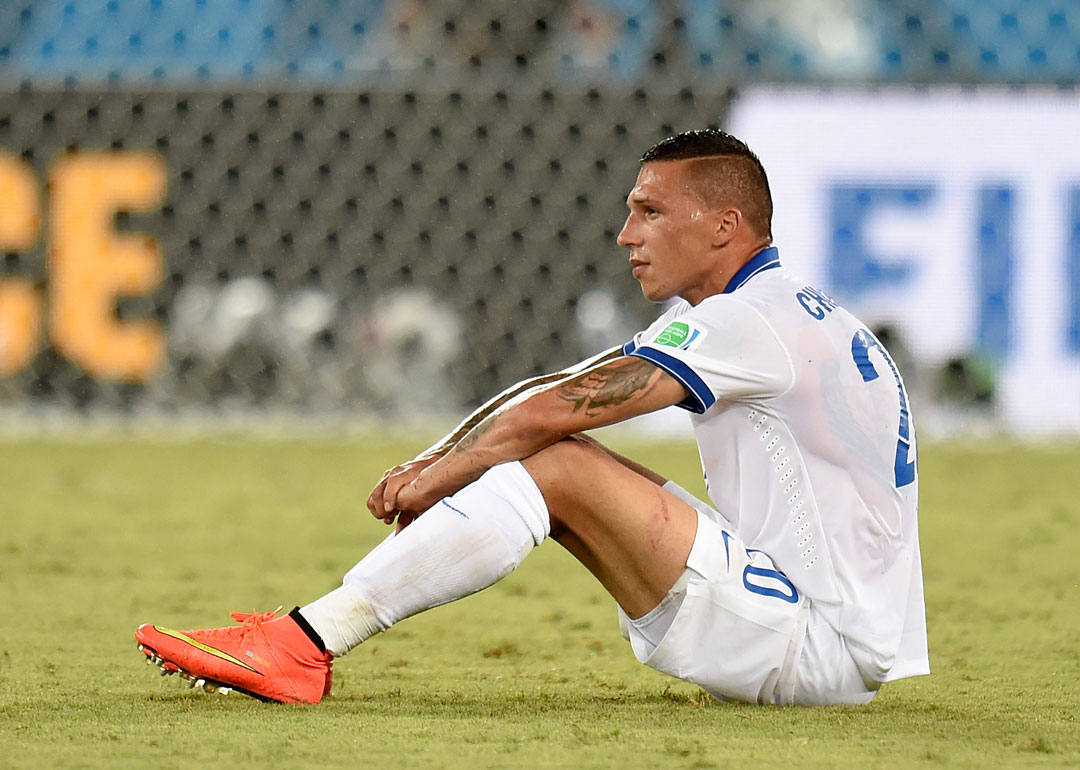
Greece and Japan travelled to Natal needing points, having both lost their opening games in Group C. Even more so given the day's earlier result in their group - a 2-1 Colombia win over Ivory Coast that all but assured their place in the second round and halved this group's available tickets for the knockout rounds.
However, in what has been an exhilarating, open, positive-minded tournament so far, someone seems to have failed to deliver the memo to Greece. They put the spoilers on this game and a negative approach smothered the game, resulting in a drab 0-0 draw. Here's how it panned out.
As the teams felt each other out early on, it became apparent that Greece were very content to sit deep in their own half and commit few men forward. Japan were allowed possession (they'd rack up quite a lot of it) and did all the early running.
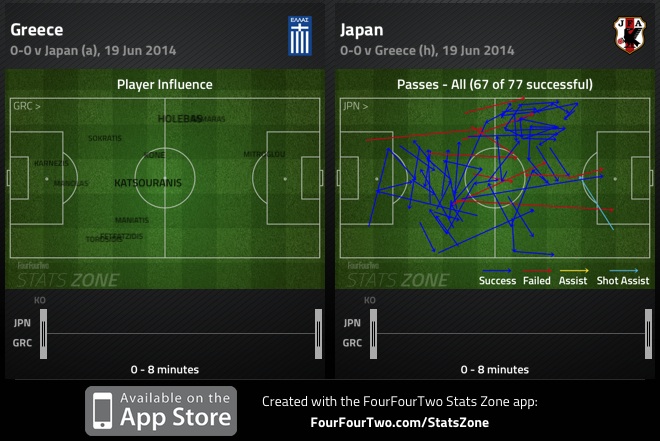
Japan were totally dominant on the ball, but they hadn't seized possession so much as being given it. Greece were unfussed by Japan's passing and were happy to stay in their own half.
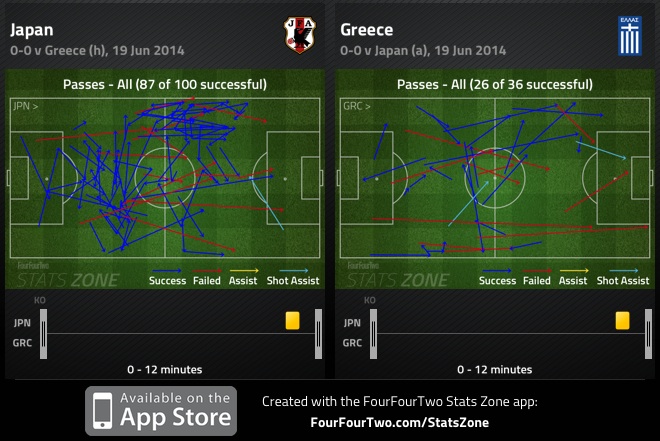
For all their possession and passing, Japan created very little – it took them until the 18th minute to register a shot on target and warm Orestis Karnezis' gloves, and even then it was a comfortable save from Yuya Osako’s long-ranger.
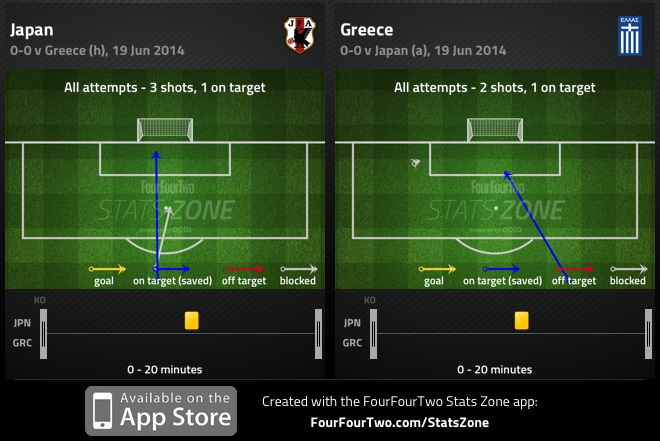
Osako was lively and had another effort from distance in the 20th minute, a nice, inventive curler that bent just wide. Japan managed a remarkable 170 passes in the opening 22 minutes to Greece’s 39.
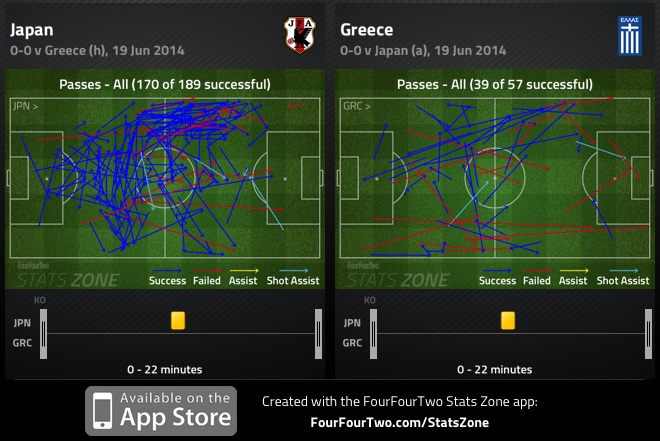
Greece, wholly reluctant to attack on the front foot, relied on long balls – mainly out to the left to Giorgios Samaras. The aim was to try and catch Japan on the counter.
The best features, fun and footballing quizzes, straight to your inbox every week.
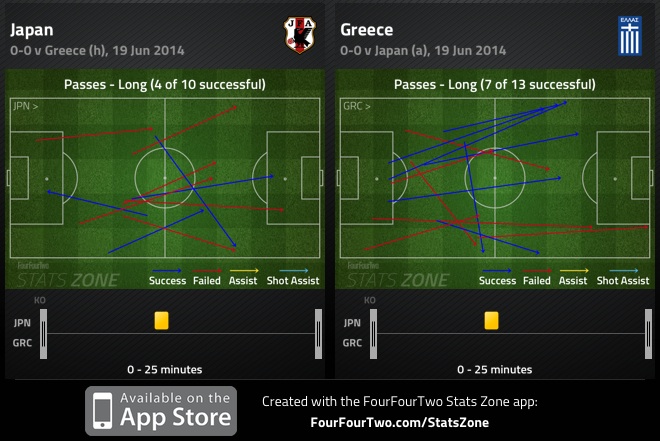
In the 38th minute, disaster for Greece. Their captain, Konstantinos Katsouranis, was sent off for a second yellow card. It was a late, risky challenge on Hasebe, especially as he was already teetering dangerously on the brink after receiving an earlier yellow card for another poor challenge. Referee Joel Aguilar showed no mercy. Greece were down to 10 men.
But they went close immediately after, a hazard sign to Japan that the game was far from over in the form of a thumping effort from Vasilis Torosidis, cleared for a corner. Ten men or not, it was the first half’s first shot on target in the box.
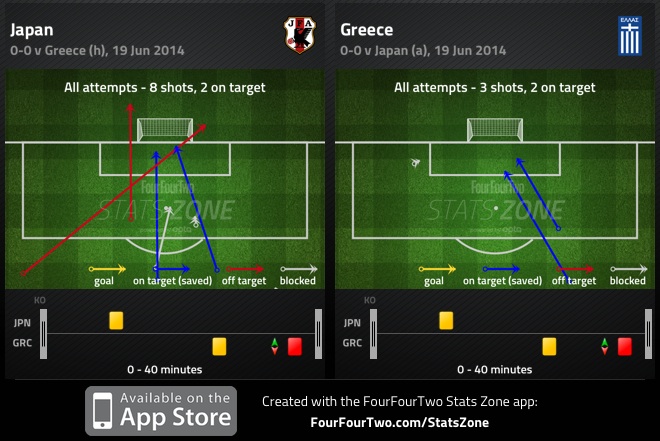
And that how it was at half-time, a game almost completely submerged by Greek negativity.
Japan's passing had them totally in control, but it was slow and laboured, with very little real penetration. Their lack of a sufficiently menacing, clinical forward reared its head once again. At half-time, Yoshito Okubo was top for most chances created while midfielder Hotaru Yamaguchi led the way for most passes.
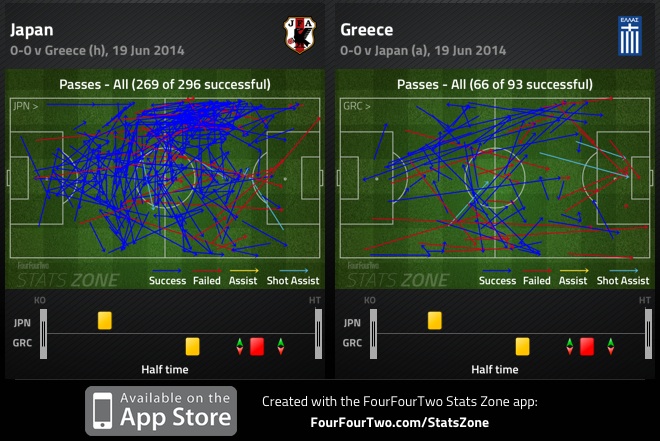
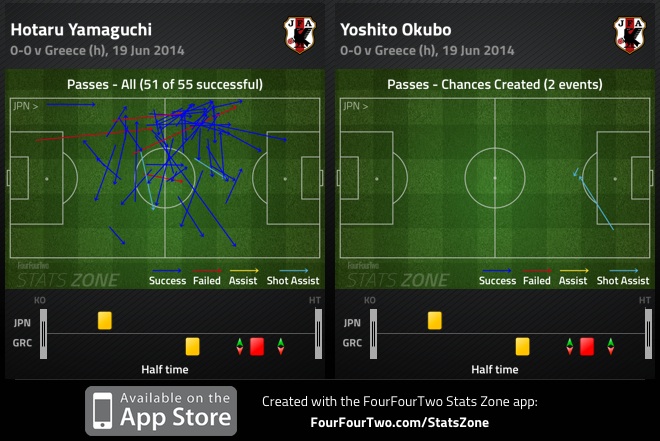
Greece had played a conservative game from minute one, so it was no surprise to see that, as the second half kicked off and with a man down, Greece sat even deeper in their own half.
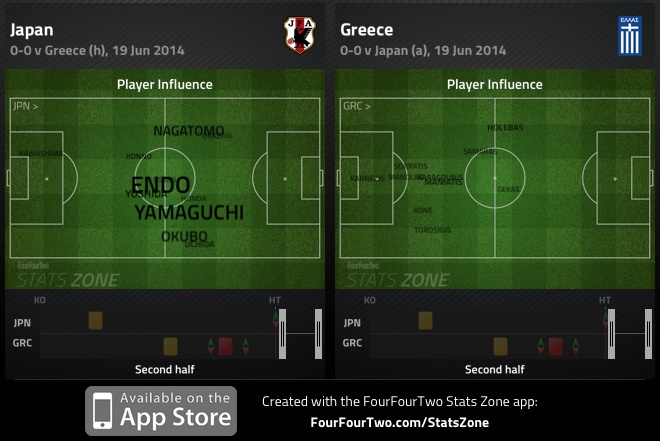
Alberto Zaccheroni, under pressure given Japan's struggles, ushered his men forward. They were urged to press and push further forward but lacked the guile and creativity ro open Greece's rigid, committed defence up. The passing was too vertical, their movement too slow. In the 57th minute, Shinji Kagawa – dropped after a lacklustre game against Ivory Coast – came on for Osako.
Japan’s full-backs pushed increasingly forward in the second half but still not sufficiently to really stretch Greece and pull them out of their defensive shape. In the 68th minute they did manage to though, and it created a moment of real danger. Inter's Yuto Nagatomo put a teasing ball across face of goal but Okubo missed a sitter from a few yards out. In the 71st minute, Schalke's Atsuto Uchida then went close after Greece had dallied in the box. The full-backs were threatening to be decisive.
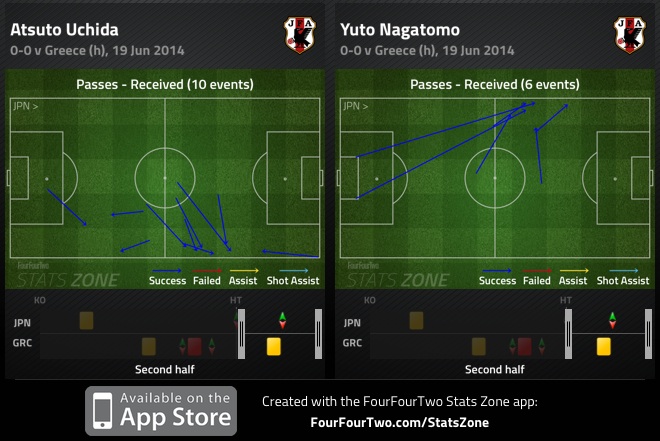
But the game was low on incident. The foul count racked up in the second half and Greece began to time waste at every opportunity. The red card had given Fernando Santos’ side the excuse they needed.
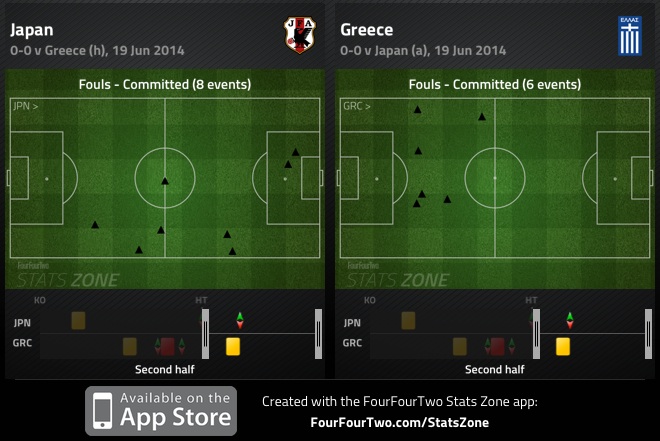
In the end it won them the point they so obviously came looking for. 0-0 it ended, despite Japan racking up 74.3% possession - more than they've ever managed at a World Cup and the second highest possession tally since 1966 (the highest was also against Greece).
Greece's philosophy seemed totally out of sync with a very forward-thinking, positive tournament. But Santos won't care - he is playing to the team's strength, and that is defending.
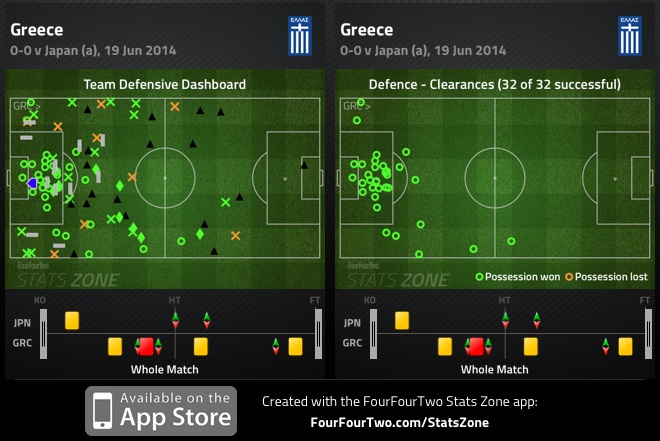
A win against Ivory Coast in their final game could still see them qualify.
Facts and figures
- Greece have kept a clean sheet for the first time in a World Cup match (8 games).
- Japan finished with 74.3% possession; more than they have ever managed from a single World Cup game.
- Since 1966, only 1 team has had more possession in a single World Cup game than Japan (Argentina versus Greece in 2010).
- Greece have scored just 2 goals in their 8 World Cup matches.
- Tonight marked Greece’s first draw in a World Cup match.
- Only once in their last 5 matches against European opposition at the World Cup have Japan managed to score (3 versus Denmark in 2010).
- Japan conceded more fouls than Greece during the game (23-18).
- Hotaru Yamaguchi attempted 84 passes in the match; more than any other.
- In fact, 9 Japanese players attempted more passes than the highest Greek player – Giannis Maniatis (26).
- Konstantinos Katsouranis’ red card was Greece’s first at a World Cup.
 Join The Club
Join The Club





